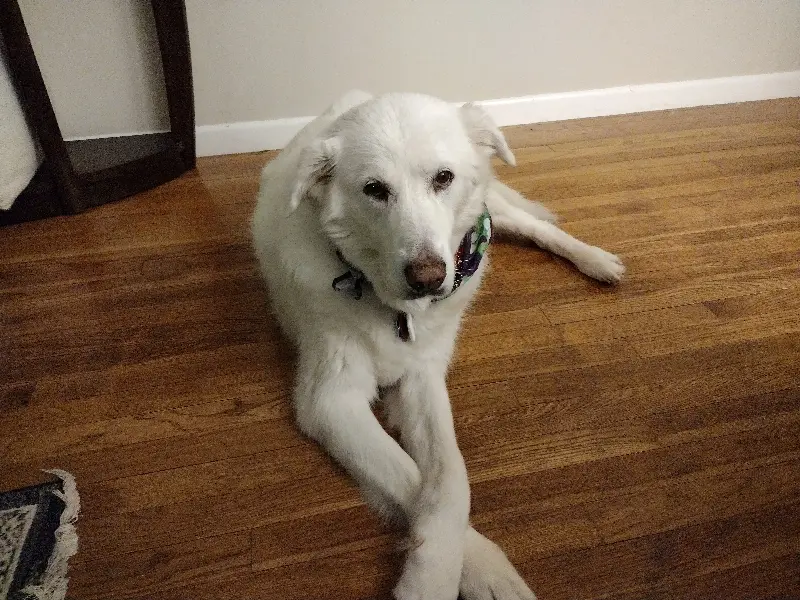
Dogs are often compared to children, and a viral TikTok certainly captures the chaos of breakfast time with a giant one.
The footage, posted on November 16 to @onehorserodeo, shows a Great Pyrenees causing an uproar over her second breakfast—kibble scattered across the floor as she grunts, stomps, scratches at the ground and barks in protest. At one point, she drags her empty bowl across the room before pretending to bite and pushing kibble around to create what her owner jokingly calls “maximum destruction.”
Eventually, the dramatic livestock guardian collapses onto the floor and begins to eat, having worked through what the text labels as the seven stages of “rage.” According to the captions, she progresses from being “threatening, scheming, annoying,” to depressed, then enraged, before circling back to more “threatening” behavior until she finally gives in.
The hysterical video has racked up over 490,000 views and more than 111,000 likes. With many comments comparing the large white dog as a polar bear.
“I think she is half polar bear,” said one user and another joked: “She doesn’t want kibble, she wants a seal and a beached whale.”
“Wait this is so weird this is EXACTLY how my Great Pyrenees eats her food. She always dumps it on the floor then pushes it into a pile and eats at her leisure.” A third added: “My dog tipped over his food once and looked all concerned because he’s not allowed food off the floor. I swept it and gave it right back to him.”
The American Kennel Club notes that while there are no strict rules for feeding schedules, twice a day is generally recommended for most dogs. However, research suggests feeding frequency could be more significant than previously thought.
A study from the Dog Aging Project—a large, ongoing dataset that has tracked thousands of companion dogs since 2019—examined how often dogs are fed and how this relates to their health.
After analyzing more than 10,000 dogs for cognitive outcomes and over 24,000 for health conditions, researchers found that dogs fed once daily had better cognitive scores and lower odds of gastrointestinal, dental, orthopedic, kidney/urinary, and liver/pancreas disorders.
These associations held even after adjusting for age, sex, breed and other factors. While the cross-sectional design means the study cannot prove causation, the authors note that once-daily feeding may be linked to improved health, highlighting the need for future longitudinal research.
Newsweek previously spoke to Dr. Lauren Witter of Small Door Veterinary about the risks of overfeeding. She emphasized that owners should ensure pets do not consume more than 10 percent of their daily calories from treats.
“Extra calories can lead to weight gain, which can cause diseases like arthritis and pancreatitis. Instead of higher-calorie dog treats, try switching to some very low-calorie, healthy options such as blueberries, raspberries, or cucumber so you can maintain that bond, without the extra pounds,” she said.
Whether the dramatic Great Pyrenees from TikTok is protesting her breakfast out of preference, personality or pure theatrics, experts agree that keeping dogs on a consistent and balanced feeding routine remains key to their long-term health.
References
Bray, Emily E., et al. “Once-Daily Feeding Is Associated with Better Health in Companion Dogs: Results from the Dog Aging Project.” GeroScience, vol. 44, no. 3, June 2022, pp. 1779–90. PubMed, https://doi.org/10.1007/s11357-022-00575-7.
